Unit 10 I’ve had this bike for three years. Section B 2a-self check(课件)(共有PPT35张)
文档属性
| 名称 | Unit 10 I’ve had this bike for three years. Section B 2a-self check(课件)(共有PPT35张) | 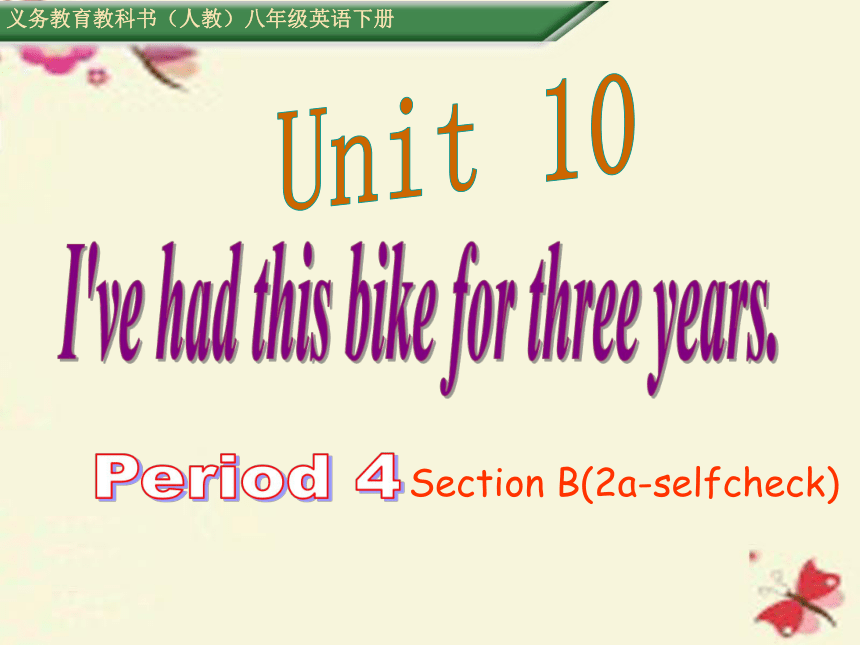 | |
| 格式 | ppt | ||
| 文件大小 | 894.0KB | ||
| 资源类型 | 教案 | ||
| 版本资源 | 人教新目标(Go for it)版 | ||
| 科目 | 英语 | ||
| 更新时间 | 2022-04-14 19:59:47 | ||
图片预览


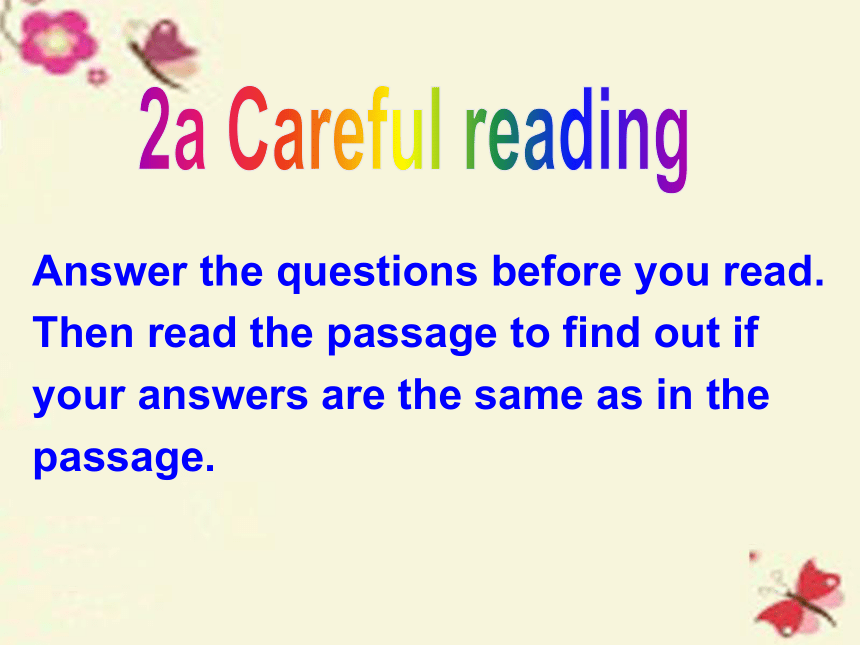
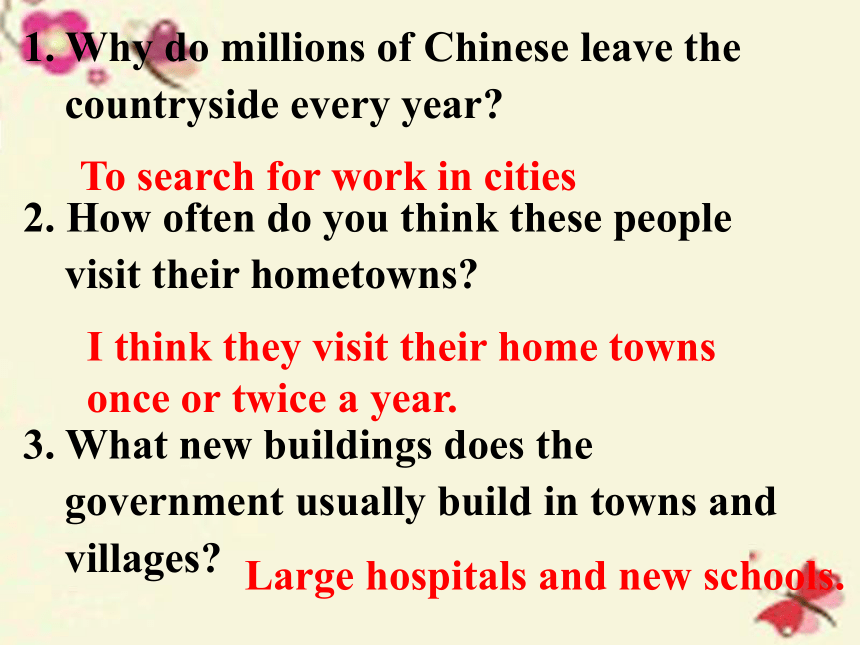
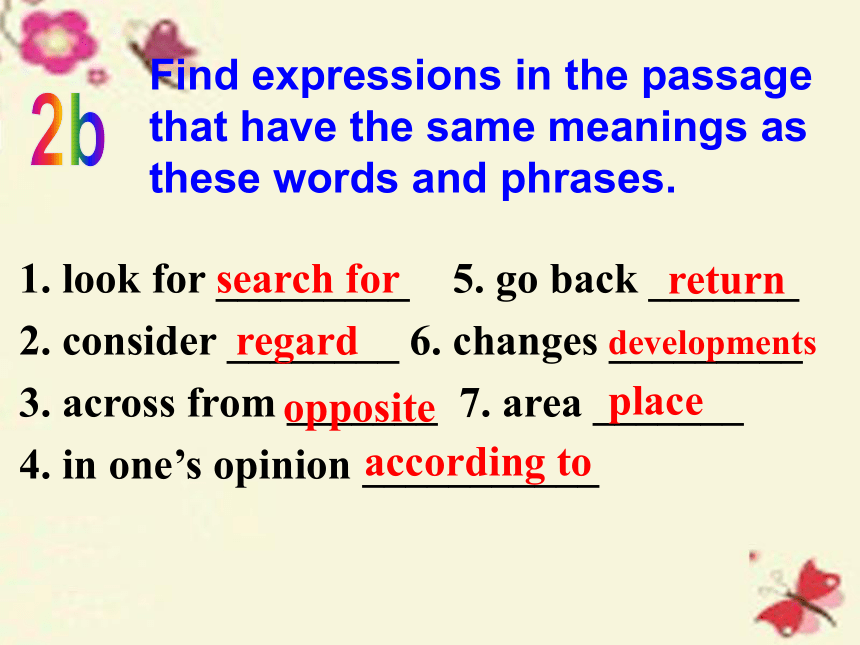
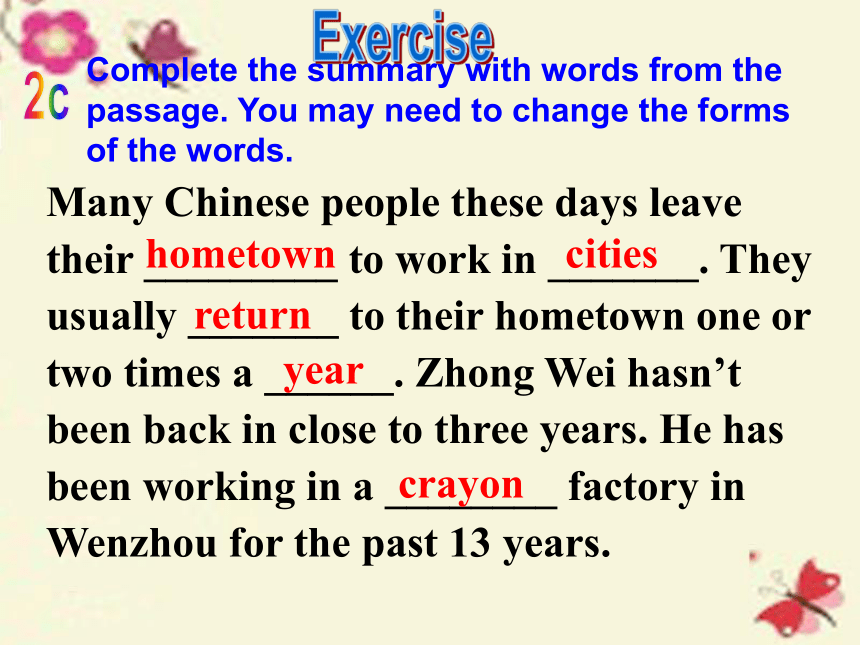
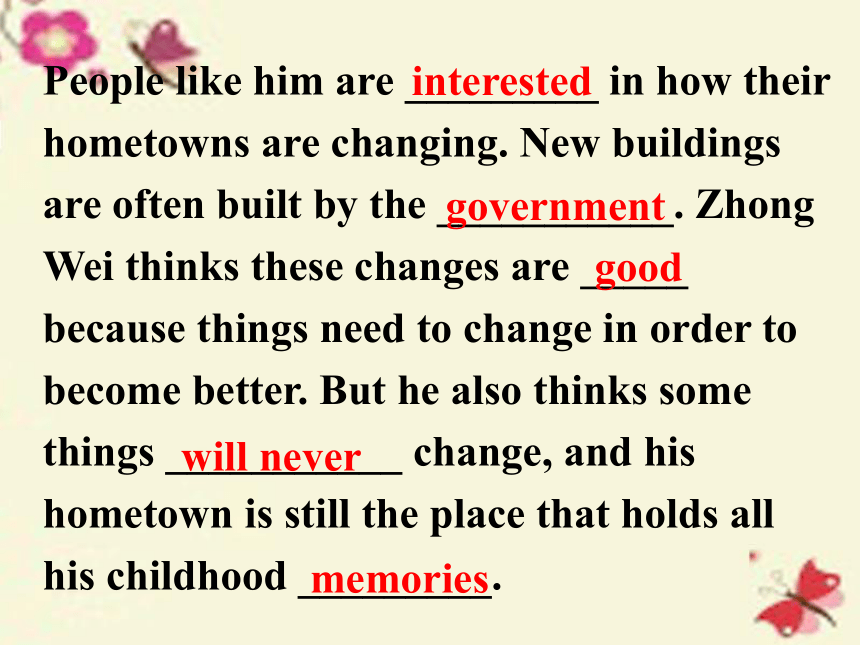
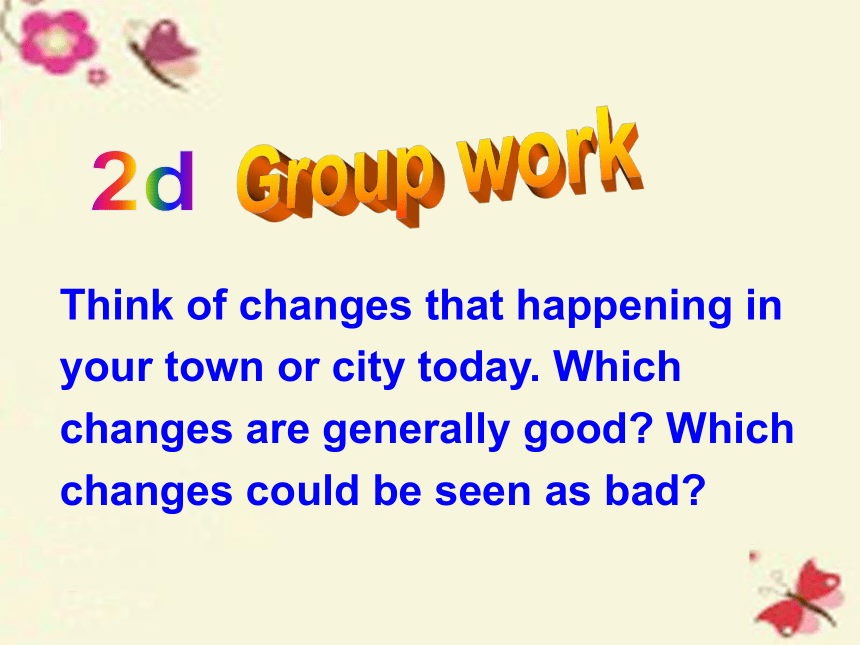
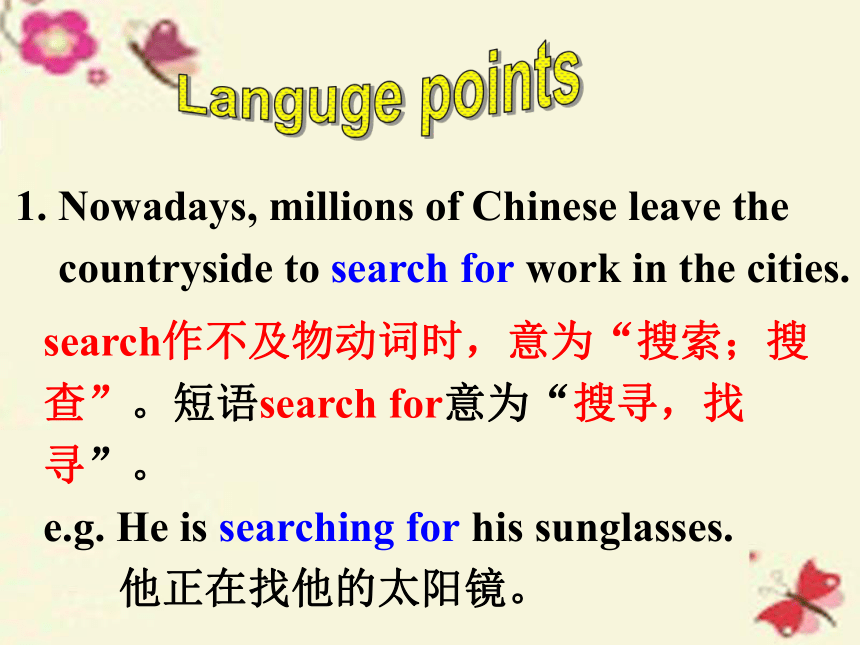
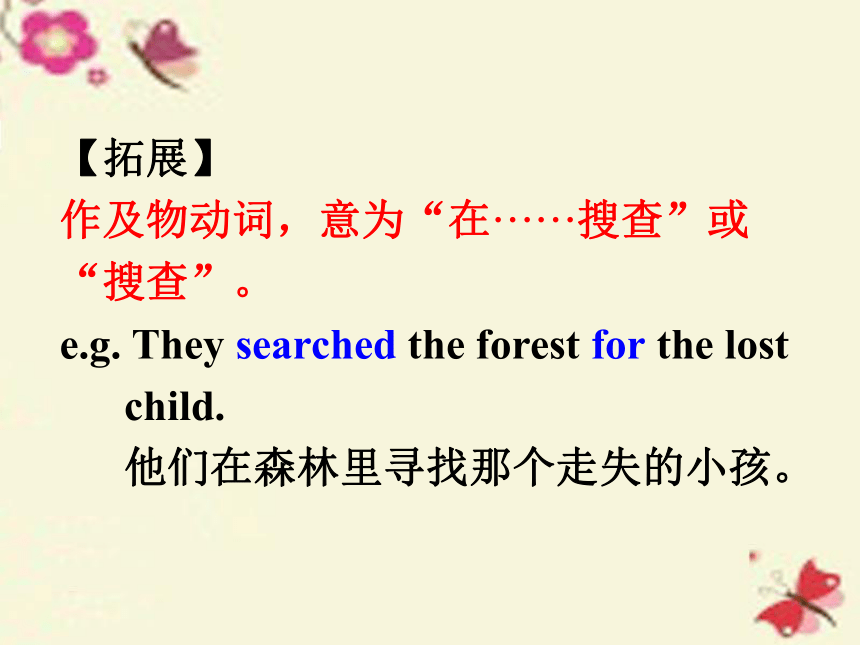
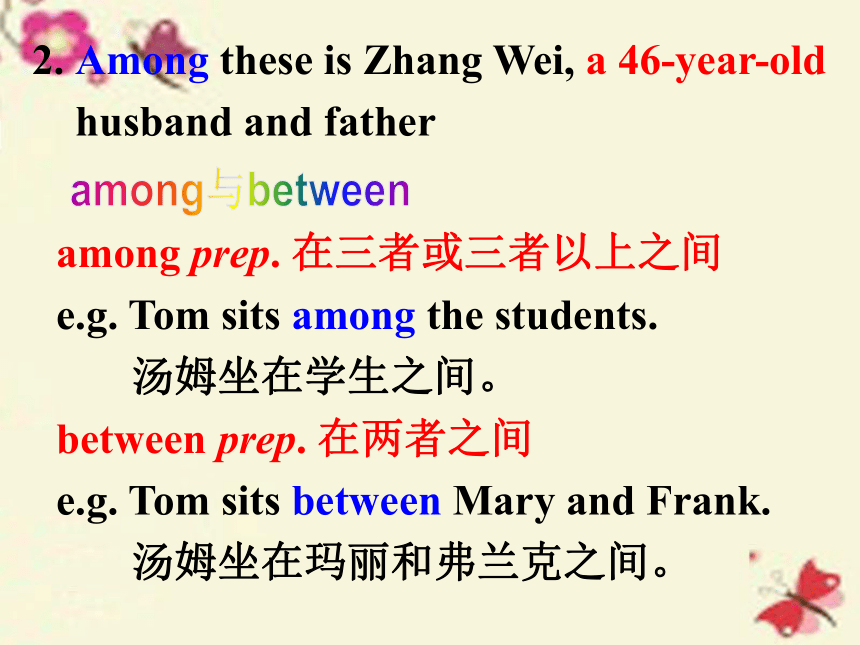
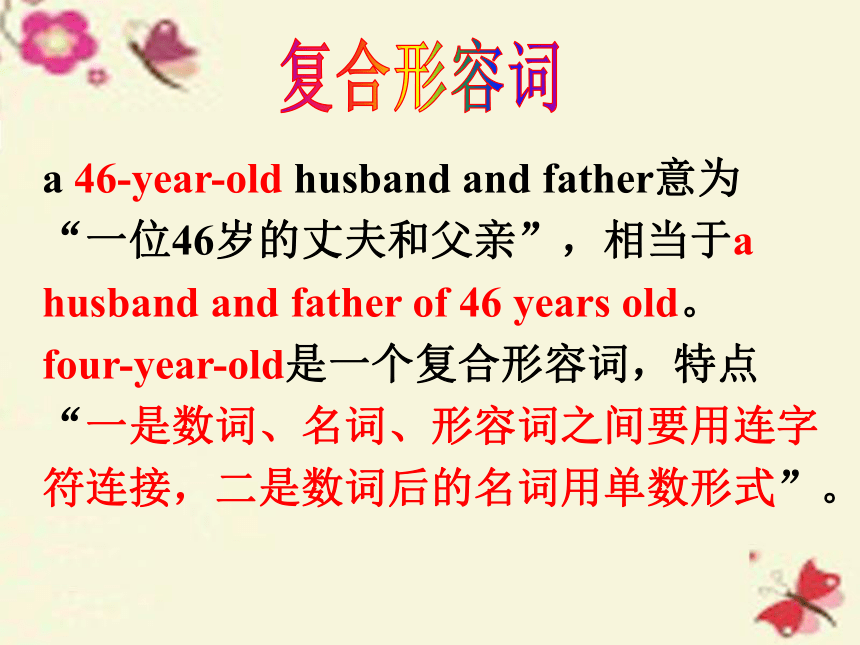
文档简介
(共35张PPT)
义务教育教科书(人教)八年级英语下册
Section B(2a-selfcheck)
How often do you visit your hometown
What are the changes in your hometown
Answer the questions before you read. Then read the passage to find out if your answers are the same as in the passage.
1. Why do millions of Chinese leave the countryside every year
2. How often do you think these people visit their hometowns
3. What new buildings does the government usually build in towns and villages
To search for work in cities
I think they visit their home towns once or twice a year.
Large hospitals and new schools.
Find expressions in the passage that have the same meanings as these words and phrases.
1. look for _________ 5. go back _______
2. consider ________ 6. changes _________
3. across from _______ 7. area _______
4. in one’s opinion ___________
search for
regard
opposite
according to
return
developments
place
Complete the summary with words from the passage. You may need to change the forms of the words.
Many Chinese people these days leave their _________ to work in _______. They usually _______ to their hometown one or two times a ______. Zhong Wei hasn’t been back in close to three years. He has been working in a ________ factory in Wenzhou for the past 13 years.
hometown
cities
return
year
crayon
People like him are _________ in how their hometowns are changing. New buildings are often built by the ___________. Zhong Wei thinks these changes are _____ because things need to change in order to become better. But he also thinks some things ___________ change, and his hometown is still the place that holds all his childhood _________.
interested
government
good
will never
memories
Think of changes that happening in your town or city today. Which changes are generally good Which changes could be seen as bad
search作不及物动词时,意为“搜索;搜查”。短语search for意为“搜寻,找寻”。
e.g. He is searching for his sunglasses.
他正在找他的太阳镜。
1. Nowadays, millions of Chinese leave the
countryside to search for work in the cities.
【拓展】
作及物动词,意为“在······搜查”或“搜查”。
e.g. They searched the forest for the lost
child.
他们在森林里寻找那个走失的小孩。
among prep. 在三者或三者以上之间
e.g. Tom sits among the students.
汤姆坐在学生之间。
between prep. 在两者之间
e.g. Tom sits between Mary and Frank.
汤姆坐在玛丽和弗兰克之间。
2. Among these is Zhang Wei, a 46-year-old
husband and father
a 46-year-old husband and father意为“一位46岁的丈夫和父亲”,相当于a husband and father of 46 years old。
four-year-old是一个复合形容词,特点“一是数词、名词、形容词之间要用连字符连接,二是数词后的名词用单数形式”。
e.g. Tom is a 10-year-old boy.= Tom is a boy of 10 years old.
汤姆是一个10岁的男孩。
Lily is an 8-year-old girl.
莉莉是一个8岁的女孩。
【拓展】
另一种类似的复合形容词作定语的结构是:数词+连字符+名词,或数词+名词的所有格。
e.g. a two-month holiday = a two months’
holiday 一个为期两个月的假期。
ten-minute walk/drive/ride=ten
minutes’ walk/drive/ride
步行/开车/骑车10分钟的路程
shame不可数名词,意为“羞耻;羞愧;惭愧”与a连用,表示“可耻的人或事;可惜(遗憾)的事”。
e.g. He felt no shame for what he had
done.
他不对自己所做过的事感到羞愧。
3. …It’s a shame, but I just don’t have the time,…
It’s a shame (that) you can’t stay for dinner.
你不能留下来吃晚饭,真遗憾。
【拓展】相关短语:
to one’s shame 令人感到羞愧的是
feel shame at …因······而感到羞愧
in shame 羞愧的
have no shame无羞耻心
regard及物动词,意为“将······认为;把······视为”。常用短语regard…as…意为“将······视为······;把······当做······”,as为介词,其后接名词或代词。
4. Many people like Zhong Wei regard with great interest how their hometowns have changed.
e.g. I regard you as my best friend.
我把你当做我最好的朋友。
We regard him as our brother.
我们把他当成兄弟看待。
century可数名词,意为“世纪;百年”,其复数形式为centuries。
e.g. the mid-20th century 20世纪中期
eighteenth-century writer
18世纪的作家
A hundred years is a century.
一百年是一个世纪。
5. Children have learned to read and count at my old primary school since the mid-20th century.
according to意为“依照,按照”,to为介词,后接名词、代词或从句。
e.g. He divided them into three groups
according to age.
他把他们按年龄分成三组。
6. According to Zhong Wei, however,
some things will never change.
especially副词,意为“尤其;特别;格外”,在句中作状语,用于列举某个特例或某事物的特殊性。形容词especial“特别的,特殊的”。
e.g. Flowers are always welcomed,
especially in winter.
鲜花总是受到欢迎,尤其是冬天。
7. Most of the children in my time liked to play together under that big tree , especially during the summer holidays.
8. consider动词,意为“考虑”,=think about,后跟名词,代词,动名词,宾语从句或“疑问词+不定式”。
e.g. Please consider my suggestion.
请考虑我的建议。
I am considering changing my job.
我正在考虑换份工作。
He has never considered how to
solve the problem.
他从未考虑过如何解决那个问题。
【拓展】在与动词连用时,只能用动名词形
式的动词或短语有:
consider “考虑” enjoy “喜爱”
practice“练习”
keep (on)“继续(一直)”
mind “介意” finish“完成”
have fun “高兴” feel like “想要”
look forward to “盼望”
can’t help “禁不住” give up “放弃”
歌诀:喜欢错过别介意,完成愉快勤练习,禁不住考虑想放弃
9. in my opinion
in one’s opinion=in the opinion of sb.意
为“依······看”。
e.g. In my opinion, it’s best to make
some cards for our teachers.
依我看,最好给我们的老师做些卡
片。
单项选择
1. I don’t believe that this ___ boy can paint such a nice picture.
A. five years old B. five-years-old
C. five-year-old
2. According ____ Mr. Wang, we’ll go on a trip this weekend.
A. in B. to C. at D. for
C
B
3. Look! She’s standing ___ the ten children.
A. among B. between C. of D. from
4. — Jackie Chan has donated ______
dollars to charity.
— He is an example to us all.
A. thousand B. thousands
C. thousand of D. thousands of
A
D
5. --Can you give me some information
about vacation trips
-- Why not ___ going to Hainan Island
A. consider B. mind C. keep D. think
6. --Did you go to Kenli during the Peach
Blossom Festival (桃花节)
--Yes. The flowers were beautiful. Bees
were flying ____ them.
A. in B. among C. between D. through
A
B
7. Nowadays millions of Chinese leave the countryside to _____ for the work in cities.
A. looked B. search C. find D. see
8. Mr. Jack _____ China for several years.
A. has been to B. has come to
C. has been in D. came to
B
C
Think about your favorite thing from childhood which you still have. For example, it can be a toy or a book. Then take notes using the questions.
1. How long have you had it
2. How did you get it Did someone give it to you Who
3. Why do you like it so much Why is it special
4. Can you say anything more about it
In the first paragraph, introduce your favorite thing.
In the second paragraph, talk about why it is special.
In the third paragraph, write about a story or memories.
Write three paragraphs about your favorite thing. Use your notes in 3a to help you.
写作指导
useful sentences
My favorite thing from childhood is _____. I’ve had it for/since _____. ____ gave it to me.
I like _____ so much because _____. It’s special to me because ____. I think _____.
_____ has given me many memories. I remember when ______.
My favorite thing from childhood is a toy car. I have had it for 6 years. My father gave it to me when I was five years old.
I like it so much because I played with it every day until I went to school. It’s special to me because it was my fifth birthday gift that my father bought.
参考范文
The toy car has given me many memories. I remember when I was seven I still played with it. I would never go to bed without it. One day I couldn’t find it after I returned home from school. I asked my parents to help me find it. We looked for it everywhere until my mother found it under my bed.
Each man is the architect of his own fate.
每个人都是自己命运的建筑师
义务教育教科书(人教)八年级英语下册
Section B(2a-selfcheck)
How often do you visit your hometown
What are the changes in your hometown
Answer the questions before you read. Then read the passage to find out if your answers are the same as in the passage.
1. Why do millions of Chinese leave the countryside every year
2. How often do you think these people visit their hometowns
3. What new buildings does the government usually build in towns and villages
To search for work in cities
I think they visit their home towns once or twice a year.
Large hospitals and new schools.
Find expressions in the passage that have the same meanings as these words and phrases.
1. look for _________ 5. go back _______
2. consider ________ 6. changes _________
3. across from _______ 7. area _______
4. in one’s opinion ___________
search for
regard
opposite
according to
return
developments
place
Complete the summary with words from the passage. You may need to change the forms of the words.
Many Chinese people these days leave their _________ to work in _______. They usually _______ to their hometown one or two times a ______. Zhong Wei hasn’t been back in close to three years. He has been working in a ________ factory in Wenzhou for the past 13 years.
hometown
cities
return
year
crayon
People like him are _________ in how their hometowns are changing. New buildings are often built by the ___________. Zhong Wei thinks these changes are _____ because things need to change in order to become better. But he also thinks some things ___________ change, and his hometown is still the place that holds all his childhood _________.
interested
government
good
will never
memories
Think of changes that happening in your town or city today. Which changes are generally good Which changes could be seen as bad
search作不及物动词时,意为“搜索;搜查”。短语search for意为“搜寻,找寻”。
e.g. He is searching for his sunglasses.
他正在找他的太阳镜。
1. Nowadays, millions of Chinese leave the
countryside to search for work in the cities.
【拓展】
作及物动词,意为“在······搜查”或“搜查”。
e.g. They searched the forest for the lost
child.
他们在森林里寻找那个走失的小孩。
among prep. 在三者或三者以上之间
e.g. Tom sits among the students.
汤姆坐在学生之间。
between prep. 在两者之间
e.g. Tom sits between Mary and Frank.
汤姆坐在玛丽和弗兰克之间。
2. Among these is Zhang Wei, a 46-year-old
husband and father
a 46-year-old husband and father意为“一位46岁的丈夫和父亲”,相当于a husband and father of 46 years old。
four-year-old是一个复合形容词,特点“一是数词、名词、形容词之间要用连字符连接,二是数词后的名词用单数形式”。
e.g. Tom is a 10-year-old boy.= Tom is a boy of 10 years old.
汤姆是一个10岁的男孩。
Lily is an 8-year-old girl.
莉莉是一个8岁的女孩。
【拓展】
另一种类似的复合形容词作定语的结构是:数词+连字符+名词,或数词+名词的所有格。
e.g. a two-month holiday = a two months’
holiday 一个为期两个月的假期。
ten-minute walk/drive/ride=ten
minutes’ walk/drive/ride
步行/开车/骑车10分钟的路程
shame不可数名词,意为“羞耻;羞愧;惭愧”与a连用,表示“可耻的人或事;可惜(遗憾)的事”。
e.g. He felt no shame for what he had
done.
他不对自己所做过的事感到羞愧。
3. …It’s a shame, but I just don’t have the time,…
It’s a shame (that) you can’t stay for dinner.
你不能留下来吃晚饭,真遗憾。
【拓展】相关短语:
to one’s shame 令人感到羞愧的是
feel shame at …因······而感到羞愧
in shame 羞愧的
have no shame无羞耻心
regard及物动词,意为“将······认为;把······视为”。常用短语regard…as…意为“将······视为······;把······当做······”,as为介词,其后接名词或代词。
4. Many people like Zhong Wei regard with great interest how their hometowns have changed.
e.g. I regard you as my best friend.
我把你当做我最好的朋友。
We regard him as our brother.
我们把他当成兄弟看待。
century可数名词,意为“世纪;百年”,其复数形式为centuries。
e.g. the mid-20th century 20世纪中期
eighteenth-century writer
18世纪的作家
A hundred years is a century.
一百年是一个世纪。
5. Children have learned to read and count at my old primary school since the mid-20th century.
according to意为“依照,按照”,to为介词,后接名词、代词或从句。
e.g. He divided them into three groups
according to age.
他把他们按年龄分成三组。
6. According to Zhong Wei, however,
some things will never change.
especially副词,意为“尤其;特别;格外”,在句中作状语,用于列举某个特例或某事物的特殊性。形容词especial“特别的,特殊的”。
e.g. Flowers are always welcomed,
especially in winter.
鲜花总是受到欢迎,尤其是冬天。
7. Most of the children in my time liked to play together under that big tree , especially during the summer holidays.
8. consider动词,意为“考虑”,=think about,后跟名词,代词,动名词,宾语从句或“疑问词+不定式”。
e.g. Please consider my suggestion.
请考虑我的建议。
I am considering changing my job.
我正在考虑换份工作。
He has never considered how to
solve the problem.
他从未考虑过如何解决那个问题。
【拓展】在与动词连用时,只能用动名词形
式的动词或短语有:
consider “考虑” enjoy “喜爱”
practice“练习”
keep (on)“继续(一直)”
mind “介意” finish“完成”
have fun “高兴” feel like “想要”
look forward to “盼望”
can’t help “禁不住” give up “放弃”
歌诀:喜欢错过别介意,完成愉快勤练习,禁不住考虑想放弃
9. in my opinion
in one’s opinion=in the opinion of sb.意
为“依······看”。
e.g. In my opinion, it’s best to make
some cards for our teachers.
依我看,最好给我们的老师做些卡
片。
单项选择
1. I don’t believe that this ___ boy can paint such a nice picture.
A. five years old B. five-years-old
C. five-year-old
2. According ____ Mr. Wang, we’ll go on a trip this weekend.
A. in B. to C. at D. for
C
B
3. Look! She’s standing ___ the ten children.
A. among B. between C. of D. from
4. — Jackie Chan has donated ______
dollars to charity.
— He is an example to us all.
A. thousand B. thousands
C. thousand of D. thousands of
A
D
5. --Can you give me some information
about vacation trips
-- Why not ___ going to Hainan Island
A. consider B. mind C. keep D. think
6. --Did you go to Kenli during the Peach
Blossom Festival (桃花节)
--Yes. The flowers were beautiful. Bees
were flying ____ them.
A. in B. among C. between D. through
A
B
7. Nowadays millions of Chinese leave the countryside to _____ for the work in cities.
A. looked B. search C. find D. see
8. Mr. Jack _____ China for several years.
A. has been to B. has come to
C. has been in D. came to
B
C
Think about your favorite thing from childhood which you still have. For example, it can be a toy or a book. Then take notes using the questions.
1. How long have you had it
2. How did you get it Did someone give it to you Who
3. Why do you like it so much Why is it special
4. Can you say anything more about it
In the first paragraph, introduce your favorite thing.
In the second paragraph, talk about why it is special.
In the third paragraph, write about a story or memories.
Write three paragraphs about your favorite thing. Use your notes in 3a to help you.
写作指导
useful sentences
My favorite thing from childhood is _____. I’ve had it for/since _____. ____ gave it to me.
I like _____ so much because _____. It’s special to me because ____. I think _____.
_____ has given me many memories. I remember when ______.
My favorite thing from childhood is a toy car. I have had it for 6 years. My father gave it to me when I was five years old.
I like it so much because I played with it every day until I went to school. It’s special to me because it was my fifth birthday gift that my father bought.
参考范文
The toy car has given me many memories. I remember when I was seven I still played with it. I would never go to bed without it. One day I couldn’t find it after I returned home from school. I asked my parents to help me find it. We looked for it everywhere until my mother found it under my bed.
Each man is the architect of his own fate.
每个人都是自己命运的建筑师
同课章节目录
- Unit 1 What's the matter?
- Section A
- Section B
- Unit 2 I'll help to clean up the city parks.
- Section A
- Section B
- Unit 3 Could you please clean your room?
- Section A
- Section B
- Unit 4 Why don't you talk to your parents?
- Section A
- Section B
- Unit 5 What were you doing when the rainstorm came
- Section A
- Section B
- Review of Units 1-5
- Unit 6 An old man tried to move the mountains.
- Section A
- Section B
- Unit 7 What's the highest mountain in the world?
- Section A
- Section B
- Unit 8 Have you read Treasure Island yet?
- Section A
- Section B
- Unit 9 Have you ever been to a museum?
- Section A
- Section B
- Unit 10 I've had this bike for three years.
- Section A
- Section B
